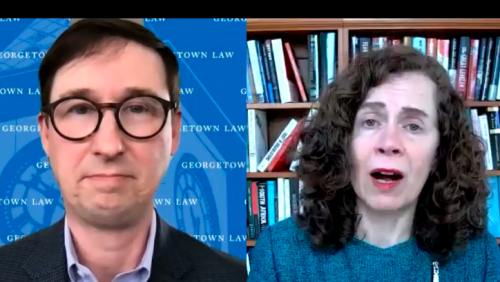According to a recent Gallup poll, the percentage of Americans that have "a great deal or fair amount" of trust in the news has fallen from 70% in the 1970s to 32% in the fall of 2023, and those that say they "have no trust at all" has grown from 6% to 39%. Deepening political divisions and the rise of social media must be partially to blame, but how might market forces have factored into this significant shift? Professor Steve Hills, Director of Georgetown Law's Business Law Scholars program, joined Professor Jim Feinerman and Denny Center Executive Director Bruce Shaw to discuss the causes, consequences, and potential solutions to the tarnished reputation of this important democratic institution.
This event was sponsored by the Georgetown Denny Center for Democratic Capitalism.
Speakers
Stephen P. Hills, Visiting Professor and Founding Director of Georgetown Law’s Business Law Scholars Program
James Feinerman, James and Catherine Denny Chair in Democratic Capitalism; James M. Morita Professor of Asian Legal Studies; Faculty Director, Georgetown Center for Asian Law
Bruce Shaw, Executive Director of the Denny Center for Democratic Capitalism
Events
The Denny Center convenes leading voices relevant to both the public and private sectors including those from business, government and cultural institutions to discuss existing tensions between free market capitalism and democratic society and to recommend potential paths forward.
Events include discussions of the purpose of a business, primary responsibilities of boards of directors, tangible frameworks and actions available to business leaders and professionals that support them, and new ways to measure the health of capitalism in the US and around the world.
The primary goal of events hosted by the center is to identify the right questions, recognizing in many areas that reasonable people may disagree on answers or solutions.
The events will range from smaller lectures, interviews or panel discussions (less than 2 hours in length) to larger keynote symposia that span a half or full day.
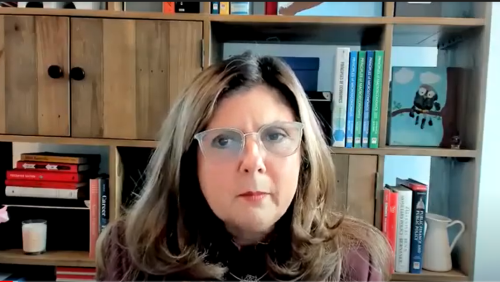
Revisiting the Health of Democratic Capitalism
Featuring: Bruce Shaw, James Feinerman, Betsey Stevenson, and Michael Strain
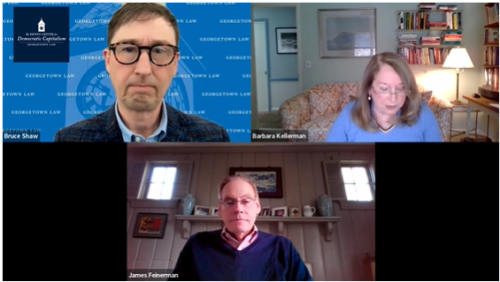
Revisiting and Revising the Leadership Industry
Featuring: Bruce Shaw, Barbara Kellerman, and James Feinerman
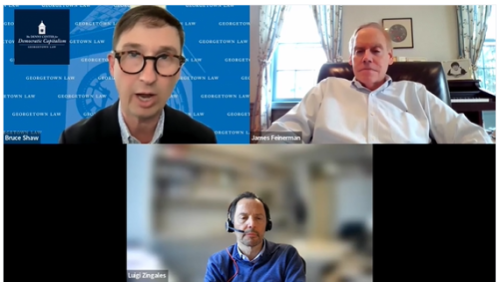
Capitalism: What's Working, What's Not
Featuring: Bruce Shaw, James Feinerman, and Luigi Zingales
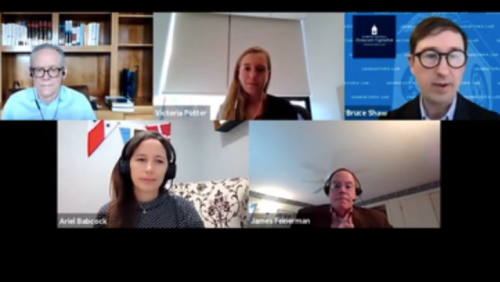
Long-term Corporate Culture: Creating Value and Strengthening Capitalism. Featuring: Tim Koller, Victoria Potter, Bruce Shaw, Ariel Babcock, and James Feinerman.
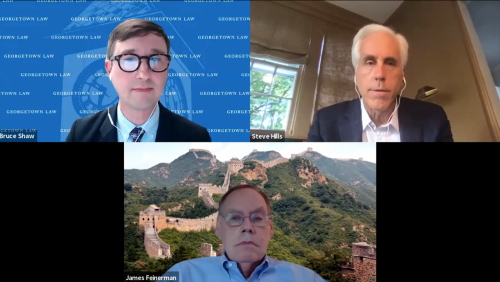
Capitalism Under Fire: Can Business Be Part of the Solution? Featuring: Stephen Hills and James Feinerman.
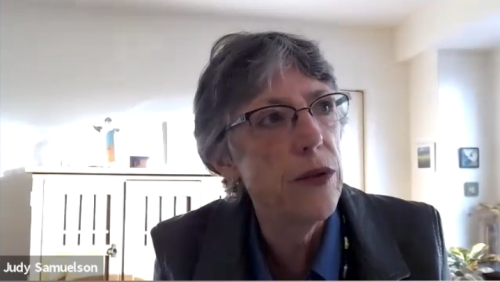
Modern Principles for Sensible and Effective Executive Pay Featuring Aspen Institute's Judy Samuelson and Miguel Padro.
Past Events
- In Search of Adam Smith: How Might He React to Today’s Market Economy? — with Richard Boyd, Adam Dixon, James Feinerman, & David Schmidtz (September 19, 2023)
- Corporate Governance in 2023 and Beyond: A Conversation with NACD on Hot Topics for Corporate Boards — with Kimberly Simpson (Apr 19, 2023)
- Revisiting the Health of Democratic Capitalism — with Betsey Stevenson and Michael Strain (Jan 11, 2023)
- Revisiting & Revising the Leadership Industry — with Barbara Kellerman (Apr 19, 2022)
- Capitalism: What’s Working and What’s Not? — with Luigi Zingales (Apr 6, 2022)
- Reimagining Capitalism — with Rebecca Henderson (Apr 26, 2022)
- Long-Term Corporate Culture: Creating Value and Strengthening Capitalism — with Ariel Babcock, Tim Koller, and Victoria Potter (Feb 17, 2022)
- Examining a New Working Class Conservatism — with Oren Cass and Tim Chapman (Jan 26, 2022)
- Capitalism Under Fire: Can Business Be Part of the Solution? Co-Sponsored by the Business Law Scholars Program — with Stephen Hills (Oct 5, 2021)
- Modern Principles for Sensible and Effective Executive Pay — with Judy Samuelson and Miguel Padro from the Aspen Institute’s Business & Society Program (Nov 17, 2021)

